In light of the beginning of hurricane season 2010 and Alex making its way towards Texas, we thought that it would be useful to share our Statement on Impartiality of American Red Cross Disaster Services on the blog. You can read the whole thing in the Disaster Response Guide on our Newsroom.
During a crisis, human beings need help to stay safe and sustain life, no matter what their nationality, cultural background or citizenship status. When an emergency happens, the Red Cross is going to deliver that help to whomever needs it, and as part of its humanitarian mission, the American Red Cross will feed, shelter, provide emotional support and other assistance without regard to race, religion or citizenship status. The Red Cross is a charity, not a government agency and clients who have disaster-caused needs do not need to be American citizens to access Red Cross Services.
Red Cross workers will not question clients about their citizenship status, nor will they request birth certificates, immigration papers, passports, social security cards, or similar documents that could be interpreted as being used to identify the nationality or immigration status of persons seeking Red Cross assistance. Only such documents necessary to identify the individual or family as living in the disaster-affected area are required for Red Cross assistance.
If federal, state or local authorities make a request to enter a shelter for the purpose of looking for undocumented shelter residents, the Red Cross will not grant them permission unless provided with a subpoena or court order. The Red Cross may disclose information about shelter residents at the behest of law enforcement if the disclosure is necessary to avert a threat or protect the health or safety of shelter occupants, another person or the community.

